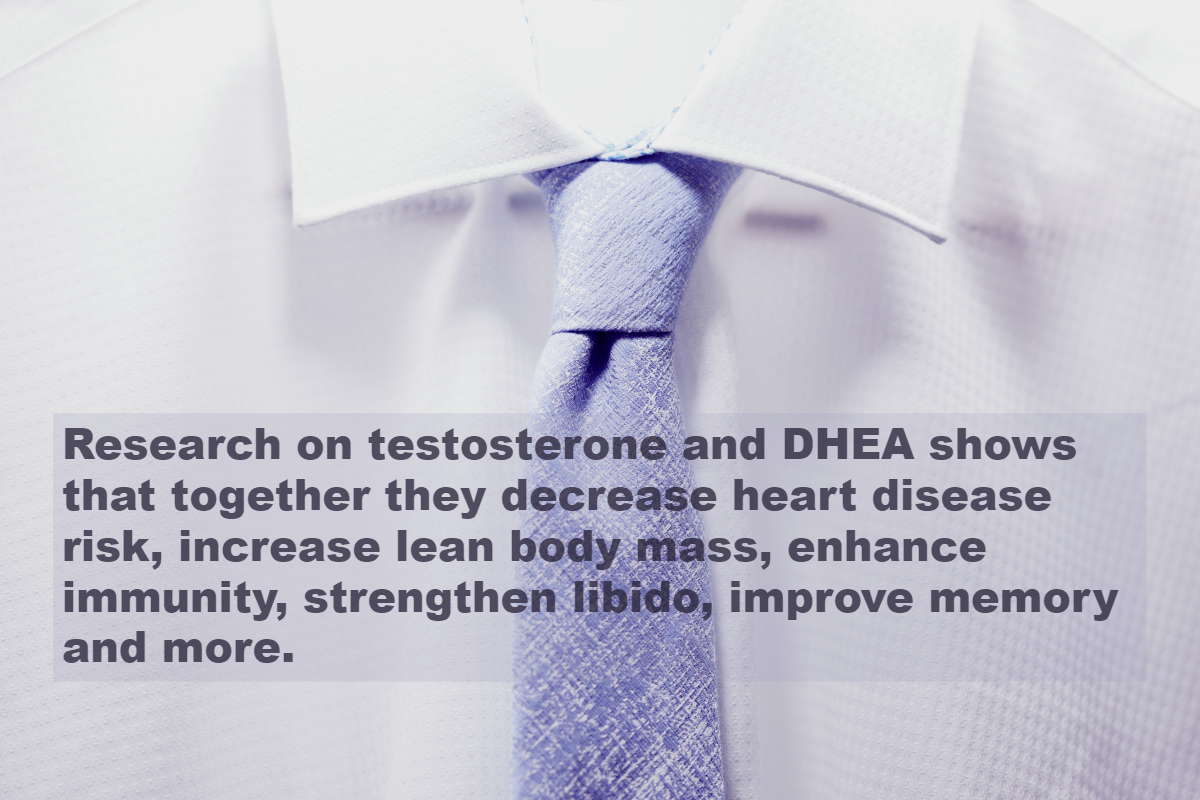What is andropause or male menopause? Andropause occurs in men when there is a steep decline in the anabolic hormones testosterone and dehydroepiandrosterone (DHEA). This drop in hormones is common in men after age 40.
How do I know if my testosterone is low? Fatigue, memory loss, cognitive decline, depression. Lack of sex drive, difficulty achieving or maintaining an erection. Aches and pains, decreased flexibility, osteoarthritis of the joints. Decreased strength and endurance, thinning of the skin. Muscle loss, osteoporosis, obesity, easy weight gain.
Estrogen levels rise with age. It may come as a surprise that the average 60-year-old man has more circulating estrogen in his bloodstream than the average 60-year-old woman! As men age, the balance between testosterone and estrogen often tilts in favor of estrogen production. As estrogen increases, testosterone production declines.

Testosterone and DHEA are beneficial in many ways. Research on testosterone and DHEA shows that together they decrease heart disease risk, increase lean body mass, enhance immunity, strengthen libido, improve memory and prevent osteoporosis. Testosterone also lowers total cholesterol and bad LDL cholesterol and decreases insulin resistance.
What can I do? With the proper diet, regular exercise, and herbal medicine, we can delay the onset and treat the symptoms of andropause. In many cases, bio-identical testosterone replacement therapy is necessary to reverse many of the negative effects of low testosterone. Biologically identical testosterone has the same molecular structure and can produce the same effects as the natural testosterone produced by the testes. Biologically identical testosterone can be administered in topical gels or sublingual tablets. For some men, testosterone pellets can be implanted under the skin, releasing a steady amount of hormone over three to six months.
Are there side effects? When correctly monitored, physiologic doses of testosterone have no adverse side effects. Before testosterone replacement is initiated, testosterone, estradiol, and PSA (prostate-specific antigen) tests are performed to determine the need for hormone replacement. To learn more, contact us.
Photos by Sharon McCutcheon and Walker Fenton on Unsplash



